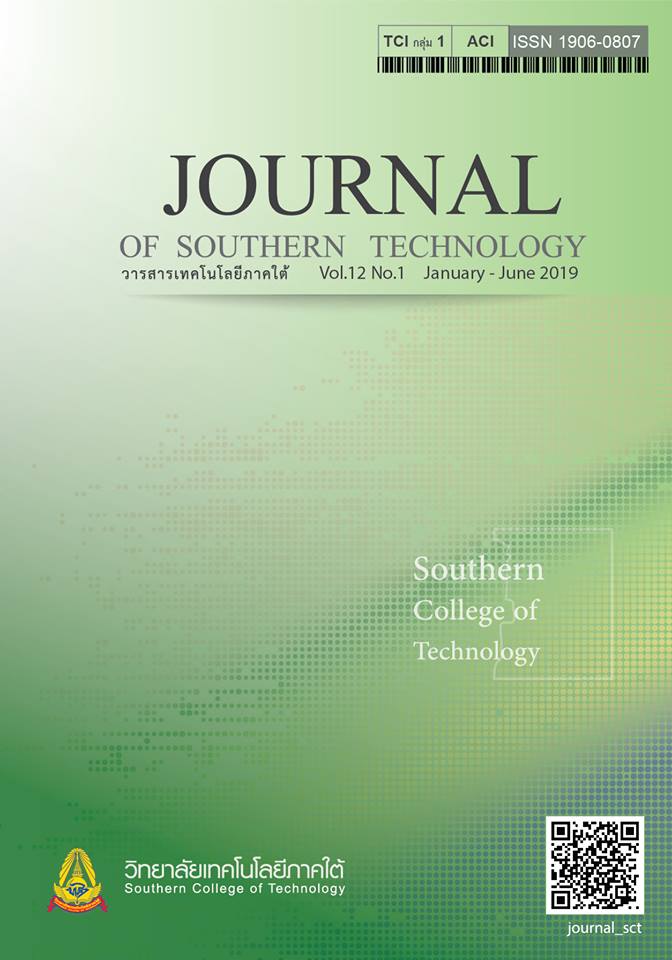A Capital Accumulation with Sufficiency Economy Philosophy of Small Enterprises
Main Article Content
Abstract
This research aimed to study the process and factor affecting capital accumulation with sufficiency economy philosophy of small enterprises. The research methodology used in-depth interview, group Interview, participant observation, expert review and then they were processed and organized by presented the results of the analysis in the form of description.
The results found that the process of capital accumulation with sufficiency economy philosophy of small enterprises. They started from the manufacturing business of automotive parts, mechanical parts and metalworking to feed them to the industrial factory, where relocated in Thailand but it must be faced with the capitalist world to borrow debt to invest. The problem was decided to sell the only house of factory and rented it instead after the debt can be paid off. Brainstorming from the employees to formulate a business strategy with the sufficiency economy philosophy in order to create a stable enterprise. The result of business operation used the sufficiency economy philosophy. The company had increased retained earnings every year and to be able buy land of 12 rai, increased registered capital from 1 million baht to 22 million baht in the year B.C. (2015) and build a new factory and made organization profitable to run a business in the long run. The process that results in successful organization was organizational strategy and management process. The factor effecting to sufficiency capital accumulation successfully of small enterprises was related to sufficiency economy philosophy consisted of 3 phases of 2 conditions:- self-organization, rationality the formulation of risk immunity and the creation of moral knowledge. The factor of innovation: management innovation, the sufficiency technological innovation and human resource management innovation, the factor of driven-capital and the stakeholders in the organization that could accumulate capitalist capitalism successfully. They were proof the core concept of sufficiency economy philosophy to be used to actually accumulate capital, which was the living sufficiency capitalist that small enterprise used to run their business. Their capital was modest, focusing on long-term profit and used in business to stay in the long run.
Article Details
-
Authors must agree to the journal publication rules and allow the editors to edit the manuscripts for publication.
-
Author’s right belongs to the author but Journal of Southern Technology holds the right of first publication and thus allow readers to use the article for the purpose of education but not commercial.
References
ISO Central Secretariat. (2012-05). Quality Management Principles. 1, Chemin de la Voie-Creuse Case postale 56.
CH – 1211 Genève 20. Switzerland.
Phanthasen, A., Kiatdeep, P., & Premchuen, S. (2003). The Application of the Sufficiency Economy Project to Small and
Medium Enterprises. Bangkok: The Thailand Research Fund (TRF). [in Thai]
Piampongsan, P. (2012). Demolition of Ecological Sustainability and Social Justice: Critique of Political Economy.
Bangkok: K.Pol Company (1966) Co., Ltd. Publisher. [in Thai]
Piampongsan, P., Phanthasen, T., & Piamyat, S. (2006). Synthesis of knowledge about Sufficiency Economy. In
Phanthasen, A.(Editor) Bangkok: The Thailand Research Fund (TRF). [in Thai]
Podhisita, C. (2001). Science and Art of Qualitative Research. 6th Edition - Bangkok: Amarin Printing & Publishing,
[in Thai]
Prasartset, S. (1980). The Evolution of the Thai Capitalist class. The Evolution of Thai Capitalism. Chatthip, N. Editor.
Bangkok: Faculty of Economics Chulalongkorn University. [in Thai]
Praditsilp, Ch. (2012). Social Research Methodology. Faculty of Humanities and Social Sciences, Rambhai
Barni Rajabhat University. [in Thai]
Schumacher, E.F. (2014). Small is Beautiful, Economics as if People Mattered. New York: Harper and Row Publishers.
Zsolnai, L. (2009). Buddhist Economics for Business.https://laszlo-zsolnai.net/content/buddhist-
economics-business (Accessed 26 May 2015).

